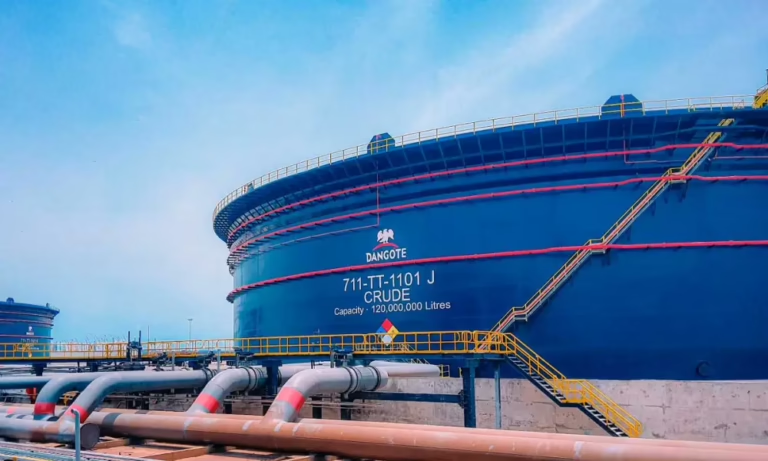Dangote Petroleum Refinery has categorically rejected recent accusations from the Nigeria Union of Petroleum and Natural Gas Workers (NUPENG), labeling claims of anti-labour conduct, petroleum-retailers-back-nupeng-strike-suspends-products-lifting-from-tuesday/” title=”… Retailers Back … Strike, Suspends Products Lifting From Tuesday”>monopolistic tendencies, and impending fuel price increases as baseless and misleading.
On September 5, 2025, NUPENG issued a statement and engaged with the media, alleging that the Dangote Group was obstructing union activities and jeopardizing employee welfare through the introduction of compressed natural gas (CNG) powered trucks.
In response, Dangote Refinery reaffirmed its unwavering commitment to upholding labour rights as enshrined in the constitution, emphasizing that all staff members retain the freedom to join any officially recognised trade union.
The refinery’s official communication dismissed claims that drivers were forced to relinquish union membership as entirely untrue, clarifying that the ongoing dispute pertains solely to NUPENG’s Petrol Tanker Drivers (PTD) faction and does not involve any infringement by the refinery itself.
At the heart of NUPENG’s concerns is the deployment of more than 4,000 CNG-powered bulk trucks, which the union fears could threaten existing employment.
Dangote Group strongly countered these assertions, presenting the initiative as a vital component of Nigeria’s broader energy transition framework.
“The introduction of CNG-powered trucks is a deliberate strategy aligned with national energy transformation objectives, not a move to eliminate current jobs.”
The company highlighted that each vehicle will be managed by a team of six personnel, with drivers earning wages well above the national minimum, alongside comprehensive benefits including healthcare, pension schemes, housing allowances, and long-term housing loan opportunities.
With plans to expand the fleet to 10,000 trucks by the end of the year, Dangote anticipates generating upwards of 60,000 direct employment opportunities.
Addressing allegations of monopolistic practices, Dangote Refinery underscored its adherence to Nigeria’s deregulated petroleum sector, operating under the oversight of the Nigerian Midstream and Downstream Petroleum Regulatory Authority (NMDPRA).
The company pointed out that over 30 refinery licenses have been granted to private entities, with active projects underway by firms such as BUA, Aradel, Walter Smith, and the Edo Refinery. It asserted, “While we are a significant player, our involvement has revitalised the downstream market, reopened previously inactive petrol stations, and restored investor confidence.”
Drawing a parallel with its impact on the cement industry, Dangote noted that its market entry eliminated Nigeria’s dependence on imports and encouraged the emergence of other domestic manufacturers.
Dangote Refinery also refuted any intentions to raise fuel prices, stating, “Contrary to these claims, our operations have contributed to stabilising fuel supply and reducing costs.”
“For example, diesel prices have fallen by over 30% in the last year, and petrol prices in Nigeria are now reportedly lower than those in oil-rich countries like Saudi Arabia and approximately 40% cheaper than in neighbouring West African nations.”
The company cited its N720 billion investment in CNG infrastructure as proof of its dedication to lowering logistics expenses and enhancing fuel distribution across the country.
Dangote affirmed its positive and collaborative relationship with all recognised trade unions, including NUPENG.
It rejected claims of abandoning recent conciliation talks, noting that the union had not formally raised any complaints prior to making public statements.
Since commencing operations just over a year ago, Dangote Refinery has transformed Nigeria into a net exporter of refined petroleum products, reaching markets as distant as the United States.
Its production of essential by-products such as polypropylene, LPG, and naphtha is driving growth in sectors like manufacturing, aviation, and agro-processing.



















